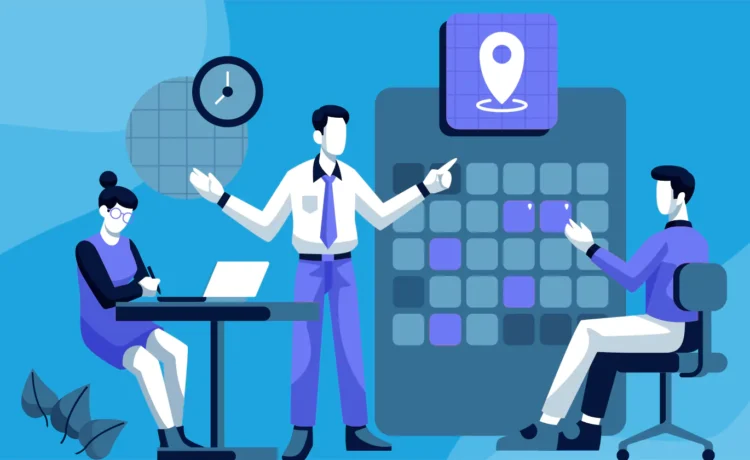In the fast-paced world of B2B sales, appointment setting services play a crucial role in bridging the gap between potential clients and businesses. These services streamline the sales process by scheduling meetings with qualified leads, allowing companies to focus on closing deals. However, understanding the costs associated with these services can be a complex task, as they vary based on numerous factors.
From pricing models to service inclusions, the cost of B2B appointment setting services isn’t a one-size-fits-all scenario. Factors such as industry specialization, lead quality, and the scope of services can significantly influence pricing. Businesses must navigate these variables to ensure they invest wisely and achieve a healthy return on investment. By demystifying these costs, companies can make informed decisions that align with their sales goals and budget constraints.
What Are B2B Appointment Setting Services?
B2B appointment setting services connect businesses with potential clients to streamline the sales process. These services involve creating and maintaining a schedule of meetings between sales teams and prospective clients, ensuring that leads are accurately targeted and engaged. Companies like Hit Rate Solutions specialize in these tasks, helping businesses focus on their core activities while experts handle the outreach and scheduling.
Professional appointment setters use a strategic approach to engage potential clients, qualify leads, and arrange meetings. These efforts enhance hit rates by ensuring sales teams meet with individuals genuinely interested in their product or service. A successful b2b appointment setting cost varies based on customization, industry expertise, and lead volume. Businesses investing in these services aim to optimize sales efficiency and increase conversion rates by reducing time spent on unqualified leads.
Factors Influencing Costs
Understanding the costs of B2B appointment setting services requires examining several key factors. These elements determine pricing variability and are crucial for aligning services with business goals.
Volume of Appointments
The number of appointments directly affects pricing in B2B appointment setting services. High-volume contracts often lead to discounted rates due to economies of scale. Conversely, smaller volumes may incur higher per-appointment costs.
Industry-Specific Requirements
Certain industries necessitate specialized expertise, impacting B2B appointment setting costs. Sectors like healthcare or finance may require additional compliance and knowledge, which raises service fees compared to less demanding fields.
Quality of Leads
Lead quality significantly influences pricing. Premium services focusing on high-quality leads can demand higher fees due to the increased effort in lead qualification and engagement strategies. Companies like Hit Rate Solutions excel in delivering tailored lead quality, justifying the associated costs.
Types of Pricing Models
The costs of B2B appointment setting services depend on various pricing models. Understanding these models helps businesses choose the best fit for their needs and budgets.
Pay-Per-Appointment
The pay-per-appointment model charges businesses for each confirmed meeting. This approach aligns cost with outcomes, making it suitable for businesses focused on tangible results. Companies like Hit Rate Solutions often utilize this model, ensuring clients only pay when a meeting is successfully scheduled.
Retainer Fee
A retainer fee requires businesses to pay a fixed monthly charge in exchange for a set number of services or appointments. This model offers predictability in budgeting, as costs remain consistent regardless of monthly appointment fluctuations. It’s ideal for companies looking to establish steady appointment-setting strategies.
Commission-Based
Commission-based pricing involves a percentage fee based on deals secured from appointments. This model motivates service providers to prioritize high-quality leads. The focus here is on conversion, where the appointment-setting cost depends on successful deal closures, benefiting businesses aiming to only incur costs when sales are made.
Benefits of Investing in B2B Appointment Setting
Investing in B2B appointment setting services equips businesses with strategic advantages that can significantly enhance sales operations. Companies like Hit Rate Solutions offer professional assistance in this arena, leading to measurable improvements.
Improved Sales Efficiency
B2B appointment setting boosts sales efficiency by delegating the time-consuming task of prospecting to experts. Sales teams can concentrate on closing deals instead of pursuing leads, resulting in higher productivity. This specialization ensures that only qualified prospects reach the sales team, reducing wasted effort and streamlining the sales funnel.
Enhanced Lead Quality
Appointment setting services improve lead quality through rigorous qualification processes. Companies benefit from engaging with prospects who have shown genuine interest, which increases conversion rates. The focus on high-quality leads aligns with the b2b appointment setting cost, as premium services ensure that every appointment has a greater chance of resulting in a sale.
Tips for Choosing the Right Service Provider
Selecting the right company for B2B appointment setting is crucial, as the quality of services directly influences sales efficiency. Evaluating several aspects can help businesses find a provider that aligns with their goals.
Evaluating Experience and Expertise
Experience in specific industries is essential. An experienced provider understands the nuances of different sectors, which helps tailor services effectively. Evaluating their track record in B2B appointment settings, such as Hit Rate Solutions, provides insight into their effectiveness and reliability. Companies should seek a provider with proven results in generating high-quality leads and managing appointments efficiently.
Assessing Technology and Tools
Advanced technology and tools enhance efficiency in appointment settings. Providers using cutting-edge CRM systems streamline processes and ensure accurate data handling. Assessing the technological capabilities of a provider reveals their readiness to manage complex databases and scheduling tasks. Opting for a service provider equipped with the latest tools ensures seamless scheduling and better integration with existing infrastructure.







